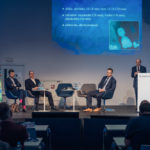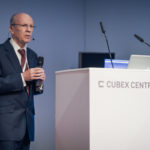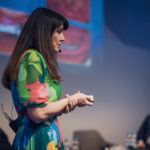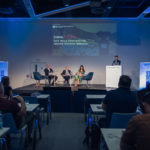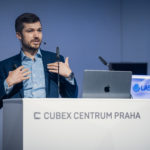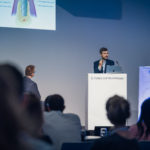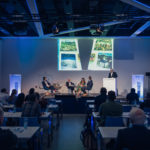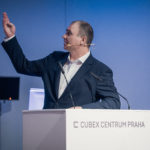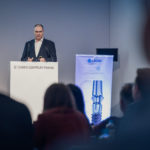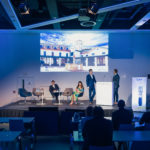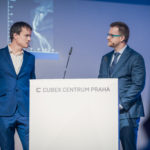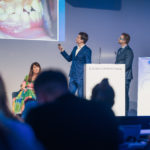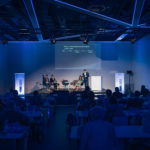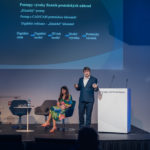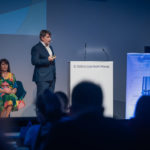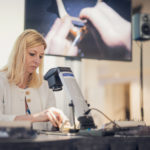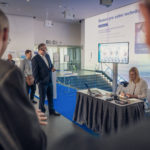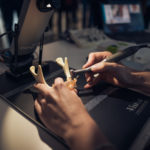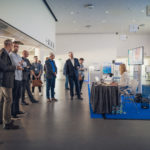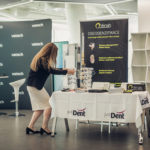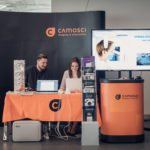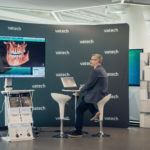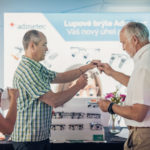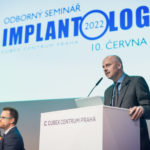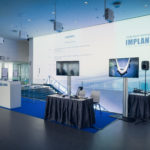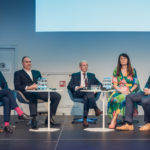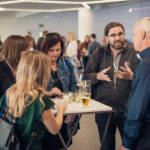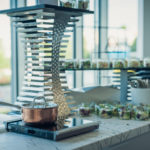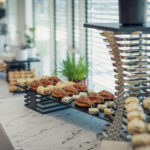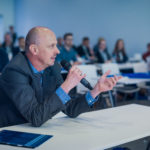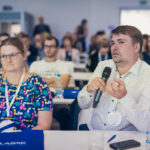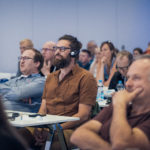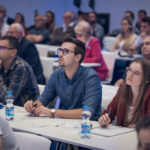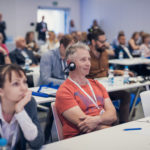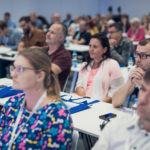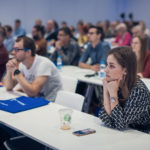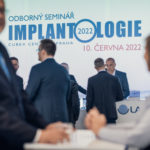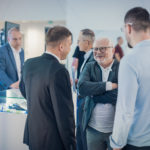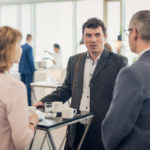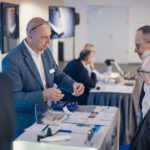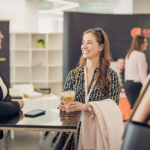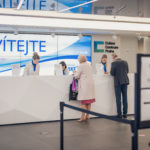On Friday, 10 June 2022, the 24th traditional annual IMPLANTOLOGY seminar was held. Despite the conference’s initial misfortune of having to be postponed twice due to covid, we were finally able to welcome delegates to Prague’s Cubex Centre this year.
Full programme of lectures
Prof. MUDr. Antonín Šimůnek, CSc. and MUDr. Dana Kopecká, Ph.D. from the Department of Stomatology of the Faculty of Medicine at Charles University and Hradec Králové University Hospital, shared their experience and approaches to various indications stemming from 30 years of work in implantology. Over time, many principles once held sacrosanct – such as views on short and long implants, sinus lift indications, and hybrid restorations – have been revisited and often substantially rethought.
Dr. med. dent. Kai Fischer, from Germany, devoted his talk to soft tissue management, specifically the augmentation and correction of soft tissue in the frontal zone. In his opinion, soft tissue management needs to be mastered if a long-term stable outcome is to be achieved. In his well-documented presentation, he looked at a variety of clinical scenarios and explained how to avoid complications arising in soft tissue and how to deal effectively with any issues that may occur.
MUDr. Michal Žitňanský drew on his many years’ experience in guided implantology to deliver an interesting presentation. He showed how even private practices can make extensive use of modern navigation techniques. He dwelt in particular on pilot and fully guided BioniQ® surgery, pointing out their differences, benefits and drawbacks, which he demonstrated with specific case studies.
MUDr. Jan Dražan and MDDr. Petr Švestka drew the appreciation of their colleagues for their detailed and case-loaded lecture. They showed how outstanding teamwork between surgeon and orthodontist enables teeth to be successfully reconstructed even in seemingly unfixable situations. The use of uncommon autotransplantation techniques as an alternative to traditional dental implants was inspiring.
The evening was rounded off by MUDr. Pavel Hyšpler, head of the Department of Stomatology at the Military University Hospital in Prague. He addressed the accuracy of intraoral and laboratory scanners, CNC milling machines and 3D printers and compared them with the precision of “traditional” prosthetic procedures. Drawing on specific clinical cases, he also discussed the limitations of intraoral scanners in scanning implants, depending on the technology and scanning method employed. His talk also explored the precision of guided surgery, the causes of imprecision, and the options available to eliminate errors, and in doing so, demonstrated an admirable grasp of state-of-the-art technology.
The quality of the presentations aroused genuine interest amongst the audience, as reflected in the discussions on the various lectures.
Digital implantology takes centre stage.
Between the sessions, attendees had the opportunity to watch a demonstration workshop on BioniQ® guided surgery presented by MUDr. Žitňanský and MUDr. Vopravilová.
The conference was also attended by several partner companies, which had stands presenting their products and latest developments, including advanced 3D CBCT diagnostic devices.
Acknowledgements
We thank all speakers, partner companies and attendees and look forward to seeing everyone at next year’s event.
Particular thanks are due to Dr Kopecká and Dr Dražan for willingly and professionally acting as expert conference moderators.
The LASAK Team
